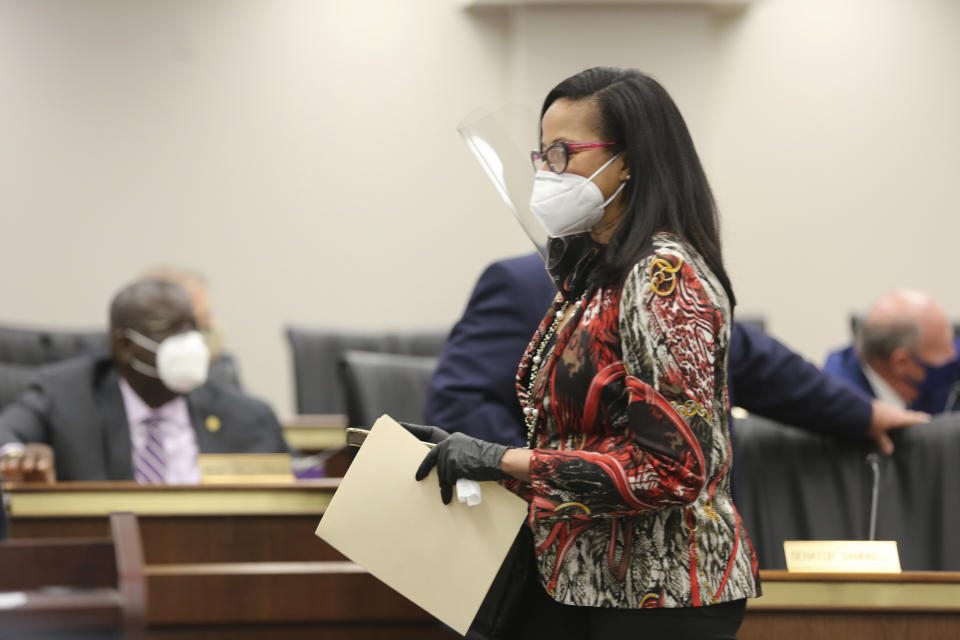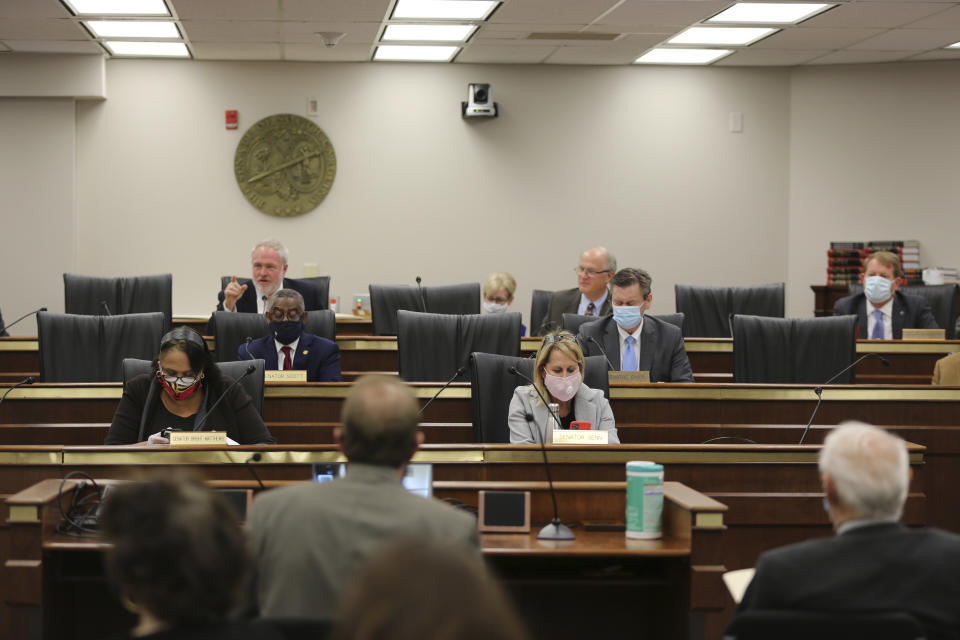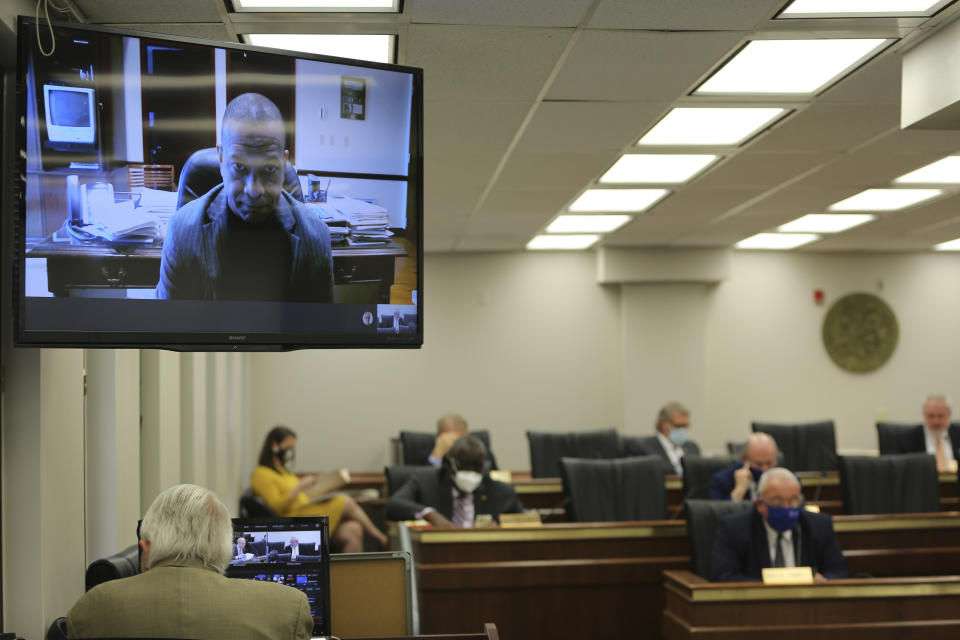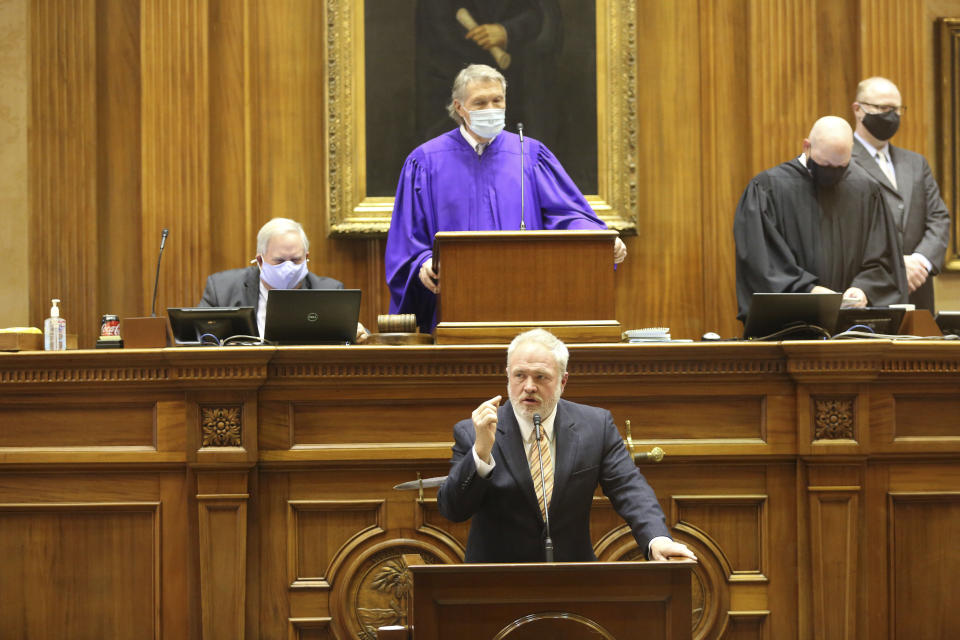SC abortion limits bill with no rape exception nears debate
COLUMBIA, S.C. (AP) — South Carolina's state senators, emboldened by their newly expanded GOP majority, are nearing floor debate on a bill that would ban almost all abortions in the state without exceptions for pregnancies caused by rape or incest.
Bills seeking stricter abortion limits have been debated for years in the General Assembly, regularly failing when Senate Republicans couldn't get enough votes to clear a procedural hurdle. But abortion foes have expressed confidence this year will be different after Republicans flipped three Senate seats for a 30-16 advantage.
The “South Carolina Fetal Heartbeat and Protection from Abortion Act” was sent to the full Senate by a key committee on Thursday. It would require doctors to use an ultrasound to search for a fetal heartbeat if a woman appears to be at least eight weeks pregnant. If a heartbeat is detected, which is typically around the sixth week of a pregnancy, an abortion would be illegal unless the life of the mother is at risk.
Doctors could be convicted of a felony if they don't check for a heartbeat or perform an abortion anyway and face up to two years in prison. The woman having the abortion would not face punishment.
Thursday’s vote sets up a showdown on the Senate floor that could last days. Democrats have successfully filibustered abortion bills and brought almost all other business to a halt before and promised to do it again. Similar bills have passed the House before and Gov. Henry McMaster promises to sign it immediately.
Opponents say a fetal heartbeat is detected often before most women realize they may be pregnant and, thus, the bill would essentially outlaw almost all abortions.
And a least one Republican, Rep. Tom Davis of Beaufort, said Thursday he can’t vote for the bill without an exception in the case of rape or incest.
Three other Republican senators joined him Thursday in a failed vote to add such an exception when the bill was approved 9-8 by the Senate Medical Affairs Committee and sent to the Senate.
To clear the persistent procedural hurdle on the Senate floor, senators will likely need 26 votes, meaning supporters can’t afford to lose many Republicans. Democrats appear to be uniformly against the bill.
In the 1980s and 1990s, South Carolina was at the forefront of stricter abortion laws as conservatives took over Southern state legislatures and made abortion a key issue. But South Carolina conservatives have been frustrated recently as nearly a dozen other states — including neighboring Georgia, nearby Tennessee and further-off Missouri — passed the stricter bans. The laws are all tied up in courts.
The state's expanded Republican Senate majority and former President Donald Trump's addition of three justices to the U.S. Supreme Court — all expected to be abortion opponents — has conservatives expressing confidence that South Carolina can finally pass the stricter ban.
Some abortion opponents don't think the current bill goes far enough, saying state law should recognize a fetus as a person from the moment of conception.
“I realize this is far from a perfect bill," said Republican Rep. Richard Cash, one of the Senate's most strident abortion opponents. “But let’s protect all the babies who have a beating heart.”
Opponents said putting into law that life begins at conception could end up outlawing some forms of birth control such as intrauterine devices and create problems with in vitro fertilization.
Meanwhile, new GOP Sen. Billy Garrett said he would ask during the Senate floor debate to outlaw a procedure known as a dismemberment abortion, which is performed in less than 1% of abortions in the state. He also wants to require doctors to tell women who choose to have an abortion by taking pills they can reverse their decision after taking the first dose. Garrett defeated a Democratic incumbent by emphasizing his opposition to abortion.
Democrats largely remained silent Thursday, awaiting a Senate floor fight that is expected to fierce and protracted.
Democratic Rep. Kevin Johnson, noting the considerable anti-abortion sentiment in the General Assembly, said, “We don’t have a lot of high opinion of women or families in South Carolina.”
___
Follow Jeffrey Collins on Twitter at https://twitter.com/JSCollinsAP.




